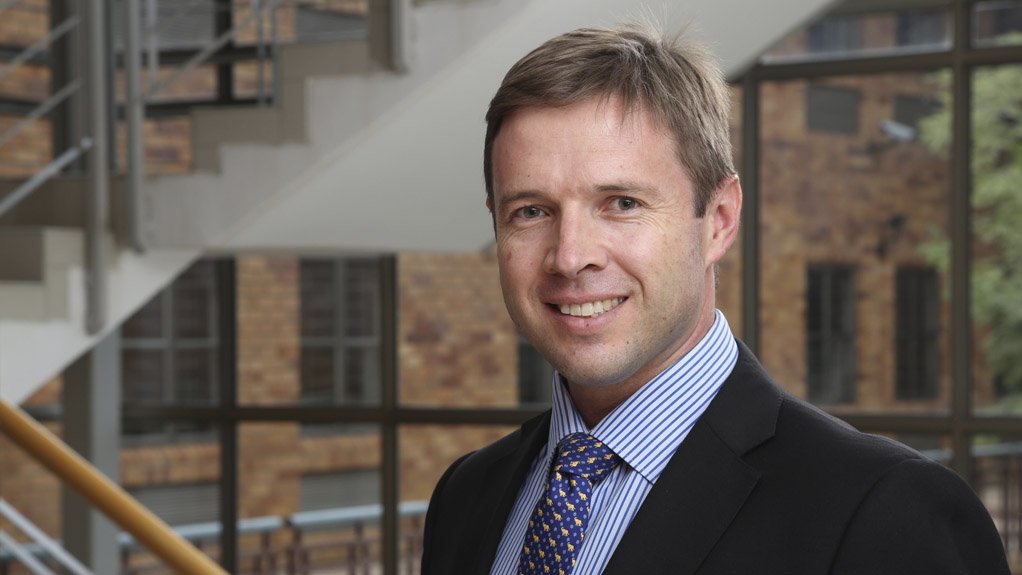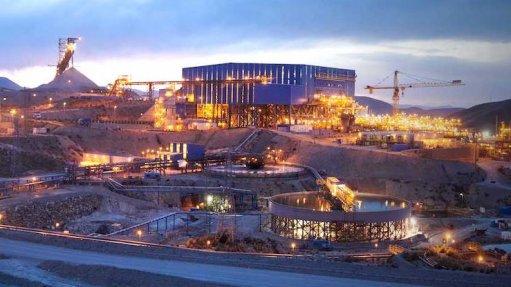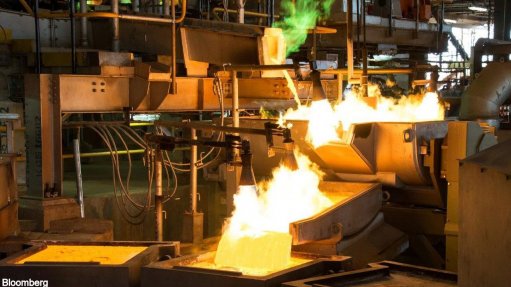Mines need to work ‘smarter to survive’


ANDREW VAN ZYL Mine development strategies require a shift towards partnerships so that all stakeholders can share the responsibility of the direction of the development
Achieving low-cost operation of a mining project starts with identifying as early as possible a strategy that optimises all the modifying factors that stand between converting a project’s in-the-ground mineral resource into an economically mineable mineral reserve, says firm of consulting engineers and scientists SRK Consulting’s partner, Andrew van Zyl.
He emphasises that upfront consulting, where projects are provided with professional guidance from early on – even before formal technical studies are initiated – is, thus, paramount to enabling mines to prosper throughout the commodities price cycle.
“The mining industry in Africa – like elsewhere in the world – continues to struggle after a period of low commodities prices, partly resulting from lower-than-forecast demand. There is consequently a growing realisation that mines need to work smarter to survive, even when the global economy recovers and mineral prices improve.”
Van Zyl notes that, while a definitive upturn in the commodities market could still be a few years away, planning and implementing a mining project – even a brownfield expansion – is a lengthy and complex process that can take several years to complete. He stresses that to fully benefit from an upturn in commodities prices, mining companies need to roll out their plans long before the recovery is established.
“Planning a mining project is increasingly fraught with risk and complexity – from technical and financial issues to governance and stakeholder management – and rushing any aspect can threaten the sustainability of a project.”
With growing opportunities for large, bulk-commodity operations in Africa, planning also includes negotiating the creation of extensive infrastructure, which is time-consuming, but vital to long-term success, Van Zyl adds.
Stakeholder Engagement
In planning a mining project in Africa, especially, Van Zyl says, mining companies need to move beyond simply complying with the regulations governing their industry and fully integrate environmental and social management with their business philosophy and practice.
“There is growing pressure throughout Africa for a shared-value approach to mining activities and an expectation from various stakeholders that the benefits of mining will be more widely spread in ways that contribute to the development of sustainable communities and economies.”
Earning and retaining their social licence to mine is, thus, becoming a strategic concern for mining companies, says Van Zyl, adding that this depends largely on companies’ relationships with local stakeholders.
“Regular protests and demonstrations at mining operations are a testament to social licence becoming more tenuous and difficult to maintain.”
He points out that, in response to stakeholder demands, regulatory frameworks have become increasingly onerous – whether imposed by lenders or governments – and it is, therefore, imperative that mining companies adopt a holistic approach to addressing these regulations.
“Mine development strategies require a shift towards partnerships so that other stakeholders can also share the responsibility of the direction of the development, rather than the mine being isolated as a source of opportunities and problems.”
Van Zyl stresses that this requires more extensive involvement by various arms of government, the private sector, communities and other stakeholders to address the often challenging legal, financial and technical details that need to be considered if a mining development is to be provided with a sound foundation.
Water, Skills Focus
A key focus with regard to limiting the cost of production currently at mining operations is water use. Mineral processing generally demands the bulk of a mining operation’s water requirements, but there are also other activities that need water of various purity levels. “Access to water is becoming increasingly critical, as competition for this scarce resource and the likelihood of conflict grows with shareholders who share the resource,” says Van Zyl.
He adds that many of the most prospective mining areas in Africa are water scarce, and that securing long-term access to affordable water is not easy. Even after access is secured, channels of communication and negotiation with other users must be closely managed, and on-site water use strategies must prioritise conservation and strict environmental compliance.
“To optimise water use and avoid shortages, mines need to continue taking strides to conserve and recycle water. In addition, mines should establish a hierarchy of water use that improves the various qualities of water on the property.”
He notes that technology is continuously being developed that enhances these imperatives, adding that many mines, for example, are using filter presses that produce a much drier tailings product for dumping. This reduces the amount of water on site that could potentially pollute water sources.
Further, he stresses that another focus in the mining industry is the development of employees’ skills to facilitate the integration
of new technologies.
“As fast-developing technology impacts on all elements of mining operations, the key skills will be those that can integrate this technology into existing or newly designed activities.”
Van Zyl adds that the performance of engineering disciplines at mines is also constantly being enhanced by technological advancements.
SRK will attend this year’s Investing in African Mining Indaba, which will be held at the Cape Town International Convention Centre from February 6 to 9, which Van Zyl says is a valuable platform for sharing experiences and best practice for managing the range of challenges faced by the African mining industry.
Comments
Press Office
Announcements
What's On
Subscribe to improve your user experience...
Option 1 (equivalent of R125 a month):
Receive a weekly copy of Creamer Media's Engineering News & Mining Weekly magazine
(print copy for those in South Africa and e-magazine for those outside of South Africa)
Receive daily email newsletters
Access to full search results
Access archive of magazine back copies
Access to Projects in Progress
Access to ONE Research Report of your choice in PDF format
Option 2 (equivalent of R375 a month):
All benefits from Option 1
PLUS
Access to Creamer Media's Research Channel Africa for ALL Research Reports, in PDF format, on various industrial and mining sectors
including Electricity; Water; Energy Transition; Hydrogen; Roads, Rail and Ports; Coal; Gold; Platinum; Battery Metals; etc.
Already a subscriber?
Forgotten your password?
Receive weekly copy of Creamer Media's Engineering News & Mining Weekly magazine (print copy for those in South Africa and e-magazine for those outside of South Africa)
➕
Recieve daily email newsletters
➕
Access to full search results
➕
Access archive of magazine back copies
➕
Access to Projects in Progress
➕
Access to ONE Research Report of your choice in PDF format
RESEARCH CHANNEL AFRICA
R4500 (equivalent of R375 a month)
SUBSCRIBEAll benefits from Option 1
➕
Access to Creamer Media's Research Channel Africa for ALL Research Reports on various industrial and mining sectors, in PDF format, including on:
Electricity
➕
Water
➕
Energy Transition
➕
Hydrogen
➕
Roads, Rail and Ports
➕
Coal
➕
Gold
➕
Platinum
➕
Battery Metals
➕
etc.
Receive all benefits from Option 1 or Option 2 delivered to numerous people at your company
➕
Multiple User names and Passwords for simultaneous log-ins
➕
Intranet integration access to all in your organisation



















